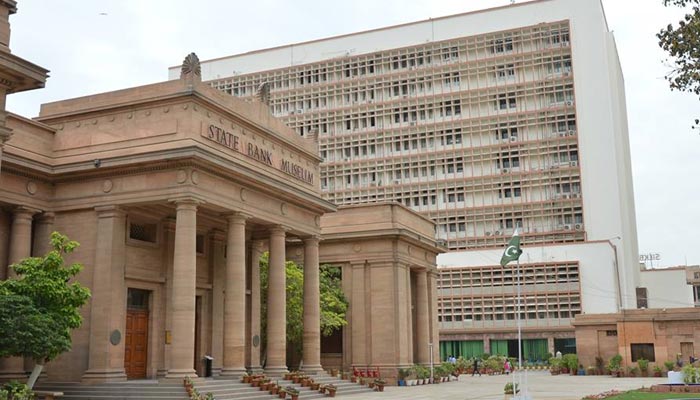Key points from latest MPC meeting
Key interest rate now stands at 20%, highest since October 1996
By Business Desk
March 02, 2023
The State Bank of Pakistan (SBP) — in an off-cycle review — raised the benchmark interest rate by a significant 300 basis points (bps) to 20% as the cash-strapped nation desperately tries to unlock the critical $1.1 billion funding from the International Monetary Fund (IMF).
The key interest rate now stands at 20%, the highest since October 1996, and consumer price inflation (CPI) has soared to a more than 50-year high.
Arif Habib Limited compiled key takeaways from the meeting's outcome, here they are:
- National CPI has swelled up to 31.5% year-on-year during February 2023, with core inflation at 17.1% in urban and 21.5% in the rural basket.
- The near-term inflation outlook has deteriorated post external and fiscal adjustments undertaken recently.
- The MPC has raised its CPI forecast for the year to 27-29% against the November 2022 forecast of 21-23%.
- Inflation in upcoming months can drift higher, albeit, at a gradual pace, as the impact of said adjustments unfolds.
- The committee noted that external account challenges persist despite the significant contraction in the current account deficit, recorded at $242 million in January 2023 (lowest since March 2021).
- Pressure on forex reserves and rupee-dollar parity also remain in place, regardless of a 67% decline in current account deficit in the July-January 2023 period given ongoing debt repayments, and lower financial inflows amid “rising global interest rates and domestic uncertainties.”
- The conclusion of the ninth review of the IMF’s EFF remains crucial to address external-sector vulnerabilities.
- Additionally, the MPC urged the implementation of energy conservation measures to alleviate pressure on the external account and to meet vital imports from other sectors.
- Fiscal consolidation remains critical for economic stability and recent measures like increase in GST and excise duties, restricted subsidies, and adjustment in energy prices should help contain the widening fiscal and primary deficits.
- This will complement the ongoing monetary tightening and help bring down inflation over the medium term.
- The committee also assessed the impact of further monetary tightening on the country’s financial stability and near-term growth.
- It was observed that “risks to financial stability remain contained, given that financial institutions are broadly well capitalised.”
- However, growth will be compromised as a trade-off.
- However, the MPC reiterated that the long-term costs of letting inflation become entrenched outweigh the immediate costs of bringing it down.
- Barring any future shocks, the committee believes that today’s decision has pushed the real interest rate into positive territory on a forward-looking basis.
- The medium-term CPI target remains unchanged at 5-7%, by end-FY25.
-
Bitwise Crypto Industry innovators ETF: What investors should do in 2026?
-
Nintendo shares slide again as momentum fears grow
-
Gold, silver prices fallen sharply; What’s driving the drop?
-
Gold’s record climb: Experts question if its safety is ‘overstated’
-
Dubai unveils plans to construct street built with real gold
-
Netflix slams Paramount’s bid: 'Doesn't pass sniff test’ as Warner battle escalates
-
Ubisoft: Shares plunge amid restructuring plan and wave of games cancellations
-
Netflix revises Warner Bros. deal to $83 billion: All-cash offer












